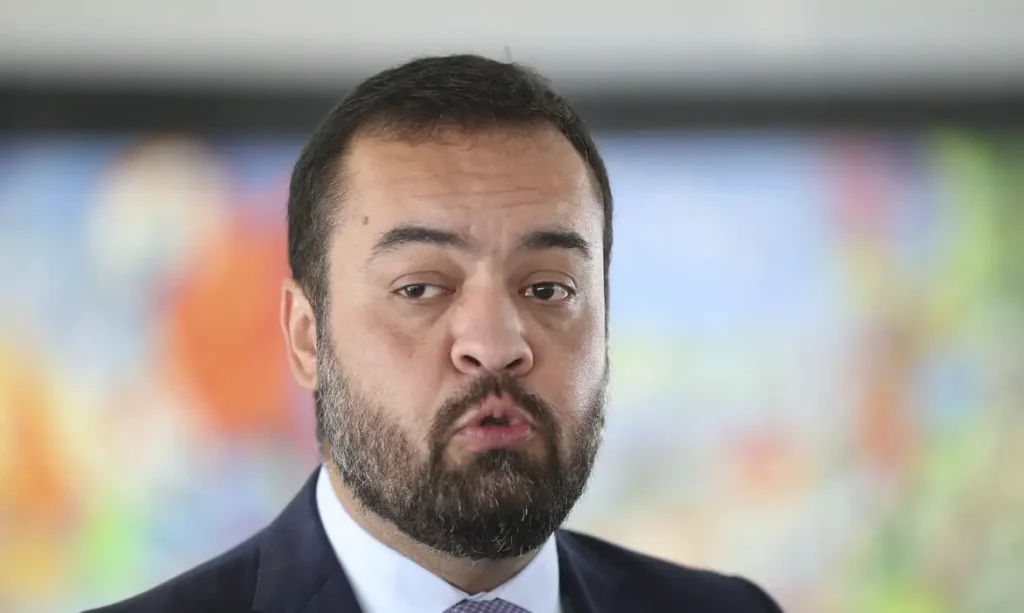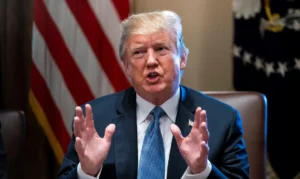
Worse than incompetence is cowardice — and Cláudio Castro combines both. The governor of Rio de Janeiro proved incapable of conducting a large-scale police operation and, faced with the disaster, preferred to blame President Lula to escape his responsibilities.
The so-called Operation Containment mobilized about 2,500 security force agents to contain the advance of the Comando Vermelho (Red Command) and serve 100 arrest warrants. Four police officers were killed, sixty suspects died in confrontation, and 81 people were arrested. Seventy-five rifles were also seized.
Besides the loss of human lives, one must consider the damage caused by the chaos in the city: the terror in the communities, the traffic jams, the closing of schools, health clinics, and hospitals, the barricades, the generalized fear, the complete collapse of routine. It was a day when Rio stopped under fire and panic.
On the same day, Cláudio Castro called a press conference to defend himself — and, instead of taking responsibility, he tried to manufacture a narrative. With a trembling voice, he stated that Rio was “alone.” He lied.
He himself admitted that he did not ask for federal help. He did not activate the Federal Police, the Armed Forces, or the Ministry of Justice. Still, he tried to convince the public that the Federal Government had denied support. To do this, he used a distorted justification: he said that on other occasions, the government had required a form to authorize the Guarantee of Law and Order (GLO). What needs to be made clear — and the press, unfortunately, fell into Cláudio Castro’s trap — is that he did not ask, did not request support from the federal government for today’s operation. Period.
The Justice Minister himself, Ricardo Lewandowski, confirmed this information. He stated that Governor Cláudio Castro did not ask for support for today’s police operation.
Among the 81 arrested, it is unknown who they are or their level of danger. Among the dead and suspects, there is no clarity on how many truly belong to factions or how many were just residents caught in the crossfire. And it will not be the first time that the city discovers, days later, that among the dead were several innocent people — victims of a disastrous and reckless operation.
What is clear is the political objective: to stir up the fascist mood of society. This tactic, which the far-right uses worldwide, is especially effective in Brazil. It was with it that Bolsonaro came to power. In Rio de Janeiro, it always gets results.
The operation, conducted without planning and used as a spectacle, served to divert public attention amid Lula’s positive wave after the meeting with Donald Trump. Chaos was created and, upon it, a lie was built.
The left, in turn, needs to be careful when reacting to this type of manipulation. By criticizing the excesses of the security forces, it is pushed into the rhetorical trap of seeming to “defend criminals” — a distortion that undermines public debate and weakens the fight for a rational and humane security policy.
For the country, thinking of the national interest and considering that public security is, in fact, a drama in the lives of millions of Brazilians, the federal government will need to think very quickly this time and use this latest crisis in Rio de Janeiro as a great opportunity to advance the agenda — the public security PEC — and generate a constructive, urgent, and assertive debate. This debate needs to involve society with creative ideas and clearly transmit that the authorities elected by popular vote are radical enemies of banditry and organized crime. This message will be essential to prevent the return of fascist sentiments in society and contain the advance of the far-right in 2026, which will try, once again, to manipulate the public security agenda with lies and easy solutions.
Notes for International Readers:
- Cláudio Castro: The governor of the state of Rio de Janeiro, an ally of the Brazilian far-right.
- Lula: Luiz Inácio Lula da Silva, the President of Brazil, from the center-left.
- Comando Vermelho (Red Command): One of Brazil’s largest and oldest drug trafficking organizations, founded in Rio de Janeiro.
- Garantia da Lei e da Ordem (GLO): “Guarantee of Law and Order.” This is a specific Brazilian constitutional provision that allows the President, upon formal request from a state governor, to deploy the Armed Forces (Army, Navy, Air Force) for internal public security operations. It is considered an extreme measure for severe crises. The author is refuting Castro’s claim that the federal government was uncooperative, stating Castro never actually made the request.
- Ricardo Lewandowski: Brazil’s Minister of Justice and Public Security (a position analogous to an Attorney General and Secretary of Homeland Security combined).
- Bolsonaro: Jair Bolsonaro, the former far-right president (2019-2022) and Lula’s main political rival.
- The left (A esquerda): In this context, refers to the progressive political camp aligned with President Lula.
- PEC (Proposta de Emenda à Constituição): “Proposed Constitutional Amendment.” This is the legislative vehicle used in Brazil to make changes to the federal constitution. A “public security PEC” refers to a proposed amendment to reform the public security system.








